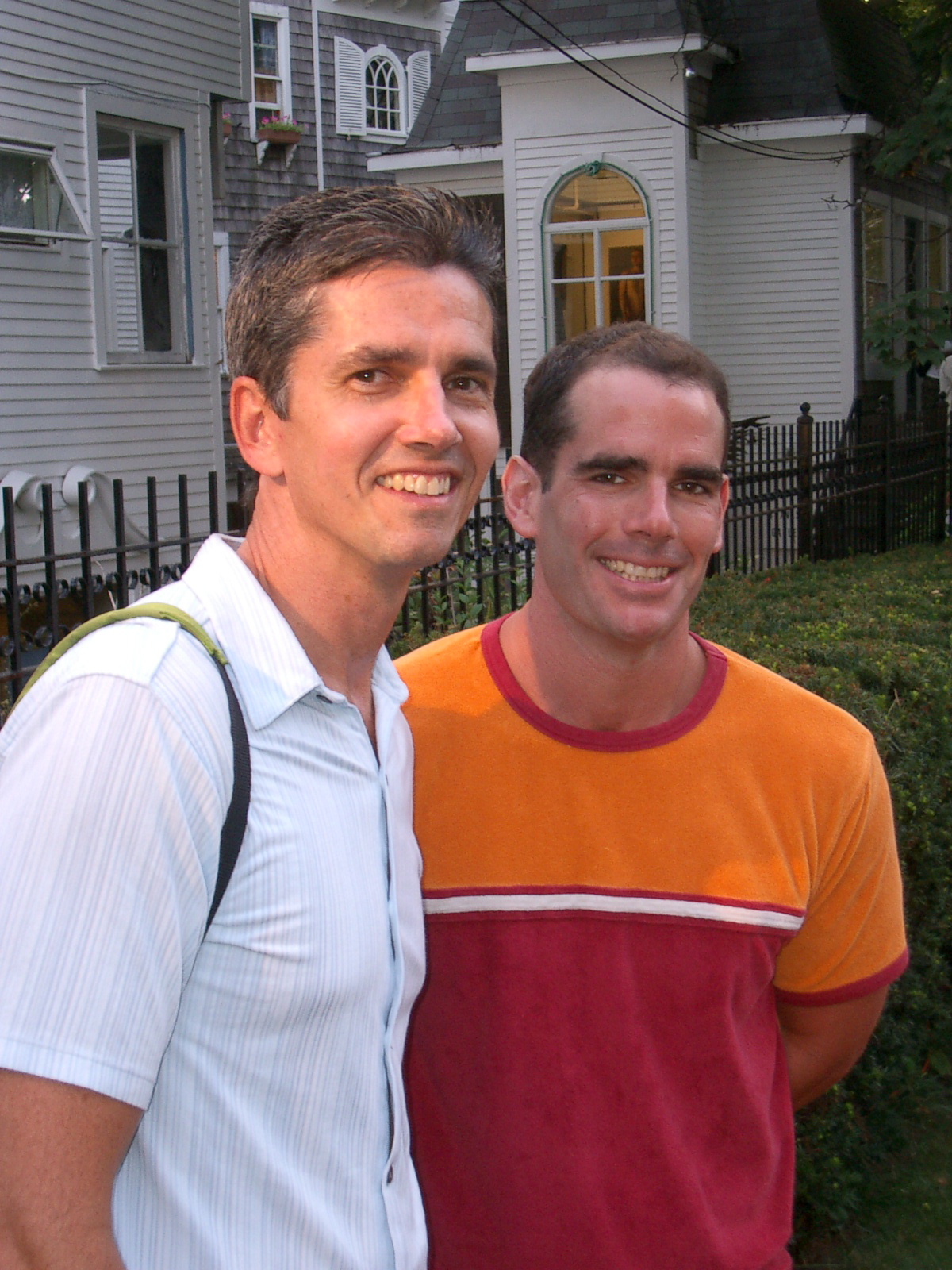I HAVEN’T SHED a single tear since my friend Bob Smith died. Bob, who broke ground as the first openly gay comedian to appear on The Tonight Show, passed away on January 20th after a long battle with ALS. Like the hilarity and honesty that permeated his writing, his refusal to live in the closet during the height of the AIDS crisis inspired countless people and literally saved lives.
Bob was my pal, my mentor, and my cheering section. We performed together hundreds of times, were roommates, and even dated for a not-so-hot second. In him, I was lottery-win lucky to find the perfect creative collaborator. (Someone almost as difficult to find as the person to fall in love with.)
I’ll miss him terribly—I’m sure in ways I’m not expecting. Since losing him, I’ve been prepared for—have maybe even been looking forward to—a crushing but cathartic sadness that would initially immobilize but ultimately heal me. But no, I feel surprisingly okay. My husband Court, worried that I’ve been suppressing my feelings, asked me a few days after Bob’s death if I’d cried yet. Without thinking I said, “I’ve been crying for ten years.”

I’ve been crying regularly since that horrible day when I sat next to Bob in a tiny exam room at Columbia Presbyterian Hospital and heard him respond to the doctor’s devastating words by quipping: “Lou Gehrig’s Disease? I don’t even like baseball!”
I’ve had a decade of crying: on the A-Train after Bob received what he’d later refer to as his “Your Gonna Die-Ignosis”; after he told me he’d been researching assisted suicide programs in Europe; after too many parties where I watched Bob’s disappointment as his wickedly funny comments fell flat, deprived of spontaneity by his slurred speech; in countless stores and museums, watching people respond with awkward smiles and pitying nods as he struggled to make himself understood; in restaurants, catching the disgusted looks of diners as Bob drooled and spit up his food; at Gotham Comedy Club, watching the audience grow impatient as Bob struggled to get out jokes that he’d killed with a thousand times.
I cried reading Bob’s Facebook post saying, “I’ve just performed stand-up for the last time,” and watching him try out eye-operated computers—a process he compared to “picking out my own coffin.” In the emergency room, I cried with Bob’s partner Michael Zam and our friend, comedian Judy Gold, as we prepared ourselves for what might be the end.
For the better part of a year, I couldn’t hold it together watching Bob shuffle down a nursing home’s bleak halls. I wept quietly while Bob slept next to me on an exhausting flight back from Israel after he was turned down for an experimental treatment there, and repeatedly on numerous bus rides home from Massachusetts General after Bob was rejected from their latest clinical trial because he “wasn’t sick enough yet,” or “could still walk,” or “had been diagnosed too long ago.” I teared up after every appointment where his emotionally stunted ALS doctor at Columbia shot down Bob’s hopes and, at yet another hospital, when they confirmed he’d never be able to eat again.
I escaped to the bathroom in his apartment and cried the first time I couldn’t understand a joke he was trying to tell me. At the show of an artist with ALS who Bob met online, I had to hurry into the next gallery to hide my face after watching the two of them holding hands because that’s all they could do for each other.
I wept angrily thinking of every encounter where someone spoke to Bob like a child and each time a friend reached their limit and disappeared from his life. I couldn’t stay composed after phone calls with his mom, remembering that she’d already buried one child. I probably cried the hardest when I felt like shit for losing patience with Bob, for bullying him, and for resenting him.
Oddly, now that my friend is gone, it seems right to be done crying. I was unexpectedly calm as we boxed up Bob’s apartment, when I canceled his cable and wrote “deceased” on his mail. Surprisingly, I held it together when the postman delivered Bob’s ashes to my door and when his family arrived for his memorial.
Though this evil disease beat Bob, it hardly got the best of him. His optimism, patience and wisecracks gave ALS a brutal ass-kicking, which, despite his suffering, was wondrous to watch. That Bob’s nightmare is over is something to be grateful for and happy about.
I’m not naïve; I have no illusions that I’m done with grief. But, I know that no matter how many tears I and everyone else shed for Bob Smith, they’ll come nowhere close to the number of laughs he’s left reverberating around the world.
Eddie Sarfaty, a comedian and writer based in New York City, is the author of Mental: Funny in the Head. He and Bob Smith were members of the stand-up troupe Funny Gay Males.



